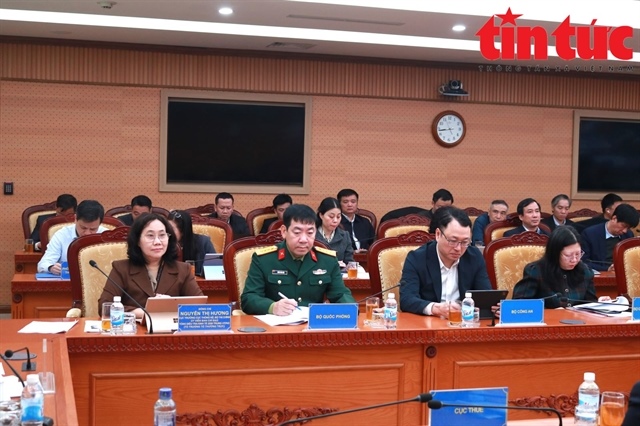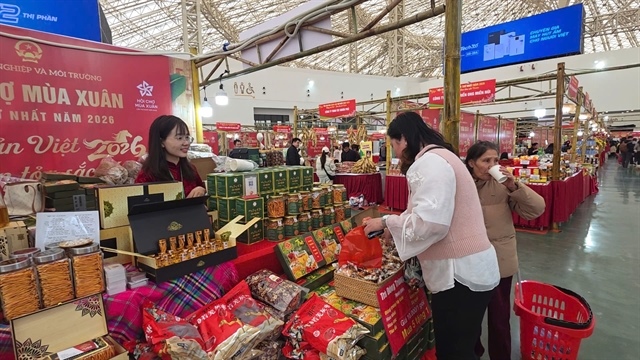The circular economy: sustainable development for big companies
The circular economy: sustainable development for big companies
Applying a circular economy model would solve the problem of finding the balance between economic benefits and environmental and social benefits. Nowadays, multinational corporations in Vietnam are beginning to incorporate the circular economy into their business strategies.
A reality of the current society is that to support economic development, people have to exploit many natural resources, which can seriously damage the environment. How can businesses limit these negative impacts? At the “Zero Landfill in Circular Economy” conference organised by INSEE Ecocycle Vietnam, experts and industry leaders have discussed the circular economy model and focused on the practical application of this model in efficient waste management and the responsible consumption of natural resources.
The circular economy: an inevitable trend
Currently, we are living in a linear economy where products are made from natural resources, sold to the market, consumed, and then disposed into the environment. This linear economy model will lead to the over-exploitation of natural resources and generation of huge amounts of waste. If we continue applying this model, the total demand for resources is expected to reach 130 billion tonnes by 2050, which is more than 400 per cent over-use of the earth's total capacity. Meanwhile, circular economy can help businesses to switch to a closed cycle of production and consumption in which waste – instead of being thrown away, wasted, and polluting the environment – will be recycled as materials for production and once again participate in the product life cycle.
According to Pham Hoang Hai, director of the Vietnam Business Council for Sustainable Development, a business applying the circular economy model has the opportunity to reduce operating costs and increase competitiveness.
Moreover, the circular economy could unlock $4.5 trillion of global economic growth. This new economic model also supports the reduction of greenhouse gas emissions and contributes to the successful implementation of the COP21 Paris Agreement as well as to the United Nations' Sustainable Development Goals.
Practical application of circular economy
Not only emphasising the importance of the circular economy to Vietnam’s economic development, the “Zero Landfill in Circular Economy” conference also inspired sustainable development through the stories of successful application of the circular economy model by large enterprises. Nestlé Vietnam is a prime example with its modern waste treatment system and transparent control process focusing on recycling and reuse.
Numerous outstanding waste recycling projects of Nestlé use unbaked bricks made from steam boiler waste sand, fertilisers made from non-hazardous waste sludge, and roofing tiles made from milk cartons. Nestlé has also announced its ambition to make 100 per cent of its packaging recyclable or re-usable by 2025.
NS BlueScope Vietnam, a member of BlueScope Corporation, one of the leading steel companies around the world, also introduced their circular economy model centring on “reduce, reuse, remanufacture, recycle.”
BlueScope has invested $500 million over the past 15 years in environmental projects that improve air quality, energy, and green house efficiency, waste management, and reduce water consumption.
The firm’s idea of remanufacturing wind turbines has achieved great success: ROI increased significantly, product cost was reduced by 25-50 per cent, while saving 80 per cent of energy and shortening production time (it only takes 4 months to reproduce a wind turbine while making a completely new one takes up to two years).
INSEE Ecocycle, the leading waste treatment brand in Vietnam and the organiser of the conference, also runs a successful circular economy model. Over 10 years, INSEE Ecocycle has successfully and safely co-processed more than 1 million tonnes of waste and reduced greenhouse gas emissions by more than one million tonnes.
By co-processing in cement kiln technology (which is widely recognised as a sustainable technology for non-recyclable waste management), INSEE Ecocycle not only creates materials and recovers energy to produce cement, but also provides an effective and sustainable waste treatment solution to more than 250 large corporations in various industries in Vietnam.
Philippe Richart, CEO, INSEE Vietnam, shared, “Over the past ten years, INSEE Vietnam has invested roughly VND900 billion ($39.1 million) into waste management solutions – and we are committed to remain the industry leader in Vietnam. Our customer trust motivates us to continuously improve our services and invest in state-of-the-art equipment and processes. We believe that the world would be a better place if everything we built could always make life worth living.”
The above-mentioned stories of the circular economy model are motivation for individuals and enterprises to embark on the journey of building and integrating the circular economy into their business strategies, aiming for sustainable development.























